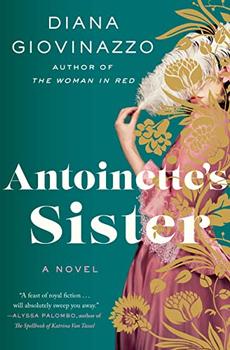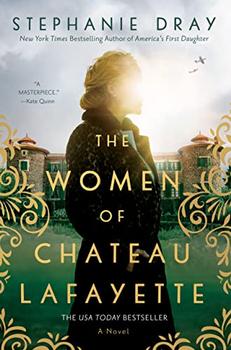Summary | Excerpt | Reading Guide | Reviews | Beyond the book | Read-Alikes | Genres & Themes | Author Bio

A Novel of Marie Antoinette
by Sena Jeter NaslundMarie Antoinette has been much maligned over the last couple of
centuries; but many recent books, most notably Antonia Fraser's
Marie Antoinette (non-fiction) have gone a long way to putting flesh
back on to the caricature. Naslund adds value by allowing Marie Antoinette to speak for herself, giving us access to the secret thoughts
and feelings (albeit hypothetical) of the young queen - territory that a
biographer must be wary of entering. For example, some say that the young
Maria Antonia met Mozart when he played the harpsicord for her mother, the Empress of Austria, and that
afterwards Maria asked him what he would like as a reward, to which he replied
her hand in marriage - a prize obviously not available to him due to the stark difference in their social positions. Naslund plays on this
theme by having the recurring image of the young Mozart haunt Marie Antoinette's
dreams with the repeating question, "Now do you love me?"
Abundance follows Marie Antoinette's 38-year story from her birth in 1755 as the
youngest daughter (fifteenth out of sixteen children) of Maria Teresa and the
Holy Roman Emperor Francis I of Austria; to her political marriage to the heir
to the French throne; through to her later years - showing how the ill-educated,
politically naive girl transmogrified into a devoted mother, and a woman of
strength and courage as her life inexorably winds towards the waiting gallows.
Arguably, Naslund tips the scales a little too far in her representation of
Marie Antoinette as a totally benign creature oblivious to the world-changing
events happening around her, but that is perhaps inevitable, because the story
is told entirely from the Queen's viewpoint making it difficult to achieve the
perspective of either a biography or of a fictional version written from an
observer's point of view, such as
Farewell, My Queen by Chantal Thomas.
Could Marie Antoinette
really have been so naive? Perhaps she could - she was just a child when
she arrived in the unwelcoming French court, and in a typically childish response
she reacted by isolating herself still further - retreating to the small circle of of
people she thought she could trust, remaining ignorant of her adopted country
for many years.
Naslund says that the story of Marie Antoinette, "a reverse fairy-tale of a
princess who lost her position and power", has fascinated her since childhood.
When asked whether there is any relationship between her previous novel, Four
Spirits (set during the Civil Rights movement) and Abundance she
says, "I wanted to affirm the value of every individual life. I wanted to say
that the same principle applies to the well-known and the privileged, even to a
person who occupies a throne: all of us share a basic humanity; we're born and
we die. Every life is precious."
"Naslund has done her homework, and imagined her complex, bewitching protagonist in persuasive depth and detail. The result is an exemplary historical novel." - Kirkus Reviews.
![]() This review was originally published in The BookBrowse Review in October 2006, and has been updated for the
August 2007 edition.
Click here to go to this issue.
This review was originally published in The BookBrowse Review in October 2006, and has been updated for the
August 2007 edition.
Click here to go to this issue.

If you liked Abundance, try these:

by Diana Giovinazzo
Published 2022
As Marie Antoinette took her last breath as Queen of France in Paris, another formidable monarch - Antoinette's dearly beloved sister, Charlotte - was hundreds of miles away, in Naples, fighting desperately to secure her release from the revolutionaries who would take her life. Little did Charlotte know, however, that her sister's execution would ...

The Women of Chateau Lafayette
by Stephanie Dray
Published 2022
An epic saga from New York Times bestselling author Stephanie Dray based on the true story of an extraordinary castle in the heart of France and the remarkable women bound by its legacy.
When all think alike, no one thinks very much
Click Here to find out who said this, as well as discovering other famous literary quotes!
Your guide toexceptional books
BookBrowse seeks out and recommends the best in contemporary fiction and nonfiction—books that not only engage and entertain but also deepen our understanding of ourselves and the world around us.